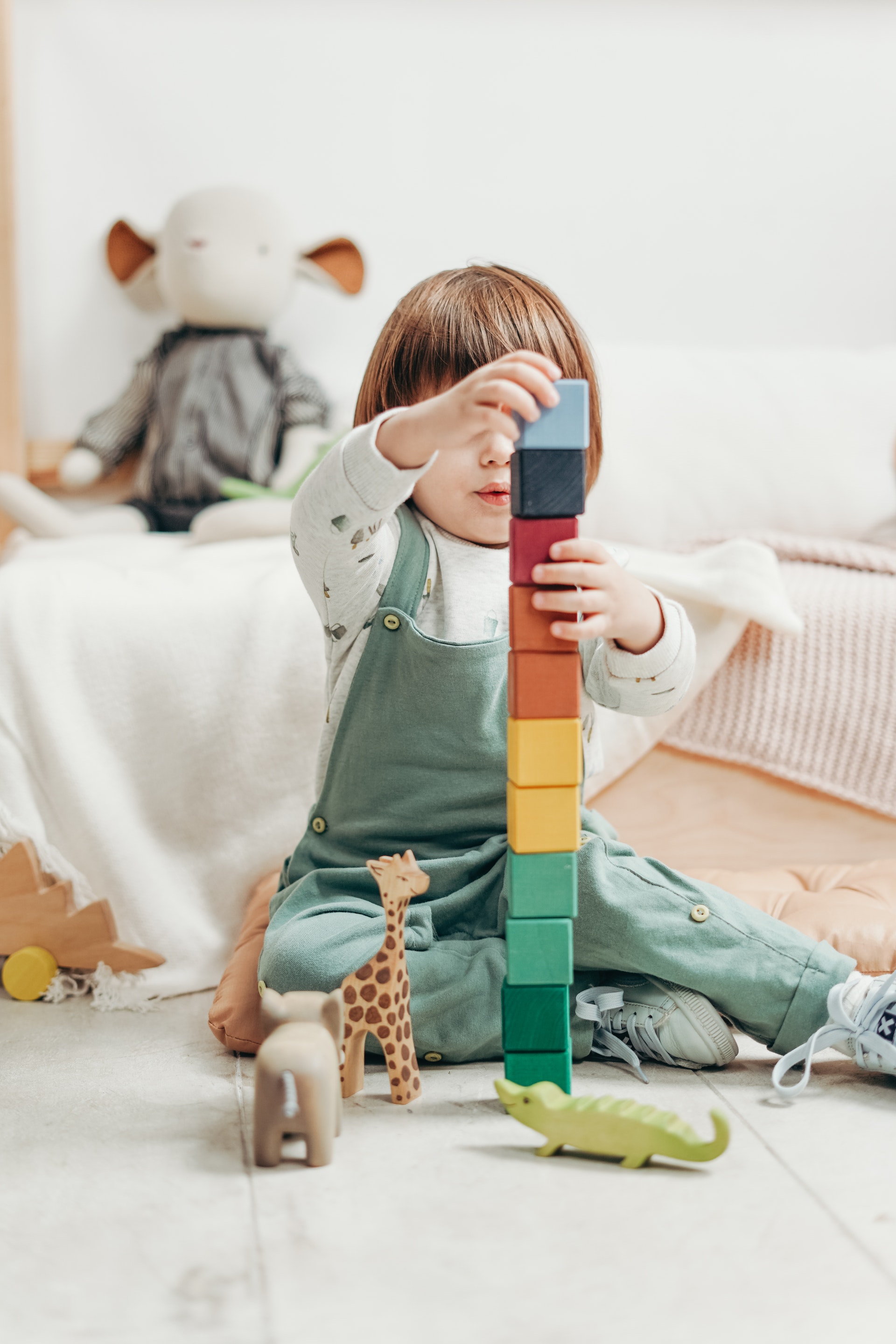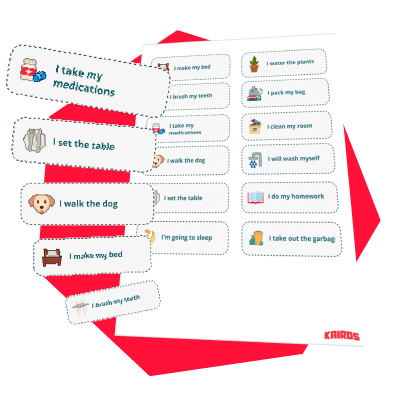You probably already know that parenting is hard work and that being a good parent is never a piece of cake. Parents have to make decisions, look after their kids, and communicate effectively. There would be a never-ending list if we had to enumerate all the efforts and sacrifices parents make for their children. Among the important things to teach children, the development of autonomy inside and outside the home is an essential process as it helps children comply with rules, have a higher self-esteem and develop good decision-making skills.
Autonomy is invaluable to acquire, but it can be more challenging to develop for children with an attention deficit/hyperactivity disorder (ADHD). Thankfully, when it comes to autonomy, parents are in a unique position to make a difference in their children’s life. Supporting children’s autonomy is a parenting strategy that is linked to various mental health benefits. Indeed, children establish their independence, feel empowered when they make decisions as well as complete tasks.
Routines are not always enjoyable for children and parents alike… but you can make them more fun with the help of Kairos. This technological tool combines a video game and an app, which allows children to carry out their daily routines independently. To progress in the game, your child has to carry out his tasks in order to gain access to new powers and reach the next level.
Kairos also includes a parental coach, which allows parents to get expert advice from professionals on various elements, such as sleep management, routines, positive reinforcement, etc. It is designed to meet the needs of children with Attention Deficit Hyperactivity Disorder or Asperger's Autism Spectrum Disorder.

How does ADHD affect kids?
ADHD is a neurodevelopmental disorder that impacts millions of kids and adults. Children growing up with ADHD may have trouble paying attention and be more easily distracted. Some children may also face other symptoms such as being hyperactive and impulsive.
Children with ADHD may also struggle with low self-esteem, troubled relationships, and poor school performance. Among the learning disorders that can be associated with ADHD, these are the most frequent:
- Dyslexia (or learning to read and write disorder)
- Dyscalculia (or math learning disorder)
- Developmental language disorders
- Nonverbal learning disorder (NLD)
Symptoms sometimes lessen with age thanks to parental support. The role that families play in the acquisition of autonomy and study habits in children with ADHD is essential. Fortunately, there are resources out there to help parents promote a healthy life routine that will help their children develop a sense of autonomy over time.
Using tool such as a routine chart can help be a good first in getting more control over your routine.
Download our free routine chart
Tips to develop the autonomy of your child with ADHD
Here are tips to develop the autonomy of your children with ADHD:
- Read about the condition
- Promote a healthy routine
- Combine play and routine
- Give your kid physical and emotional space
- Stay healthy and positive
1. Read about the condition
This won’t surprise anyone, but knowing more about the implications of ADHD can help you make informed decisions as a parent regarding your child with ADHD. Of course, health professionals can be of help if you have questions, but they aren’t always available. Having knowledge about the condition will give you more confidence in your parenting decisions. Learning about the condition will help you better understand your child and how to adapt to them.
2. Promote a healthy routine
We all know that a good night of sleep and a little physical activity is essential for overall health for all kids, but it can have an even greater positive impact on kids with ADHD. Implementing a routine is a lifesaver for children with ADHD to keep them accountable and have them fulfill tasks in an orderly manner.
Children and adults with ADHD will have more difficulties with time estimation and perception of time. Therefore, consistency is key to help your child situate themselves in time. Children with a hyperactivity disorder often have lots of energy to burn, therefore planning periods of physical activity throughout the day is a great way of releasing that energy.
Also, there are countless benefits to physical activities. They improve blood circulation concentration, decrease stress, depression, anxiety, and promote brain growth. Kids with attention deficits should do regular exercise. It leads to better sleep, which can also reduce the symptoms of ADHD. A good night of sleep is the best way to end the day, and also start the next one!
Making your kids eat the right food and follow a healthy lifestyle can be challenging. Nevertheless, having a healthy diet does wonders in all aspects. It affects your child's brain function and improves his mental conditions, which in turn seems to influence behavior.
Monitoring when and what your child eats can help decrease the symptoms of ADHD.
3. Combine play and routine
The simplest form of learning for children is play and routines. To encourage your child to develop his autonomy, it is important to establish certain rules such as washing their hands before eating, picking up his toys after playing, making his bed before leaving home, clearing the table or doing homework when he gets home from school.
To start carrying out activities autonomously, the child has to know how to do them. That is why you have to give explanations and offer simple and clear instructions. You can start by guiding him or doing them yourself first so that he learns and can continue on his own.
A great way to make routines more playful is to download Kairos, an app that transforms the process of completing daily tasks and makes it fun for children. The technological tool includes a kid as well as a parent section so that kids can perform their tasks and reach new milestones in the game while parents can get parental advice as well as have access to statistics related to their children's routines.
4. Give your kid physical and emotional space
Let your child tell you about his experiences whenever he feels like it, asking him many questions can make him feel overwhelmed or feel that his privacy is being invaded. However, you can give rise to conversations that lead you to chat about how he feels or how his day has gone. Your child should also have access to a place where he can be quiet and calm when he feels like it, which can be his room, as well as a reading, playing or meditation space.
Always make sure your kid feels comfortable sharing his emotional and mental changes with you. You should also protect your child's self-esteem by being patient, understanding, acknowledging, and accepting. Besides that, let your children know you believe in them. Build resilience by keeping your relationship strong with your child with ADHD!
5. Stay coherent and positive
As a parent or guardian, you must keep yourself coherent and positive. It’s hard to implement a healthy routine when there is a lack of coherence with your own lifestyle. Adolescents with attention deficit/hyperactivity disorder, even children with ADHD, will be quick to point it out, and you’ll lose credibility.
Try also to be consistent with instructions between the two parents. Also, making sure the instruction between parents, schools, nurse and other health professionals are as similar as possible will reduce the total number of instructions the kids has to learn and therefore he or she will be quicker to understand and master them.
When you're energetic, and positive, you can't bring the best out of your kids. Children learn a lot through imitation and mirroring the attitude they see in their environment. This explains the importance of remaining healthy and positive when addressing ADHD and homework with your child.
Furthermore, remember that your kids’ behavior is related to a disorder, and that it is not intentional most of the time. Hold on to your sense of humor, but do not overshield your kid because of his/her neurodevelopmental disorder. Overprotecting children with ADHD does not contribute to developing a sense of autonomy, it actually has the reverse effect.
In summary
It is imperative to build autonomy for the child with chronic health issues or care needs. By following these tips, you can develop the autonomy of your child with ADHD.
Kairos is an application made for kids that turns chores into games. This phenomenal platform was created by a parent for other parents to build a sense of autonomy in their children with a level of engagement rarely seen. This approach is amusing, pedagogical, and effective at being complementary to child-rearing. You can find free tools conducive to autonomy and setting a routine on our website!



